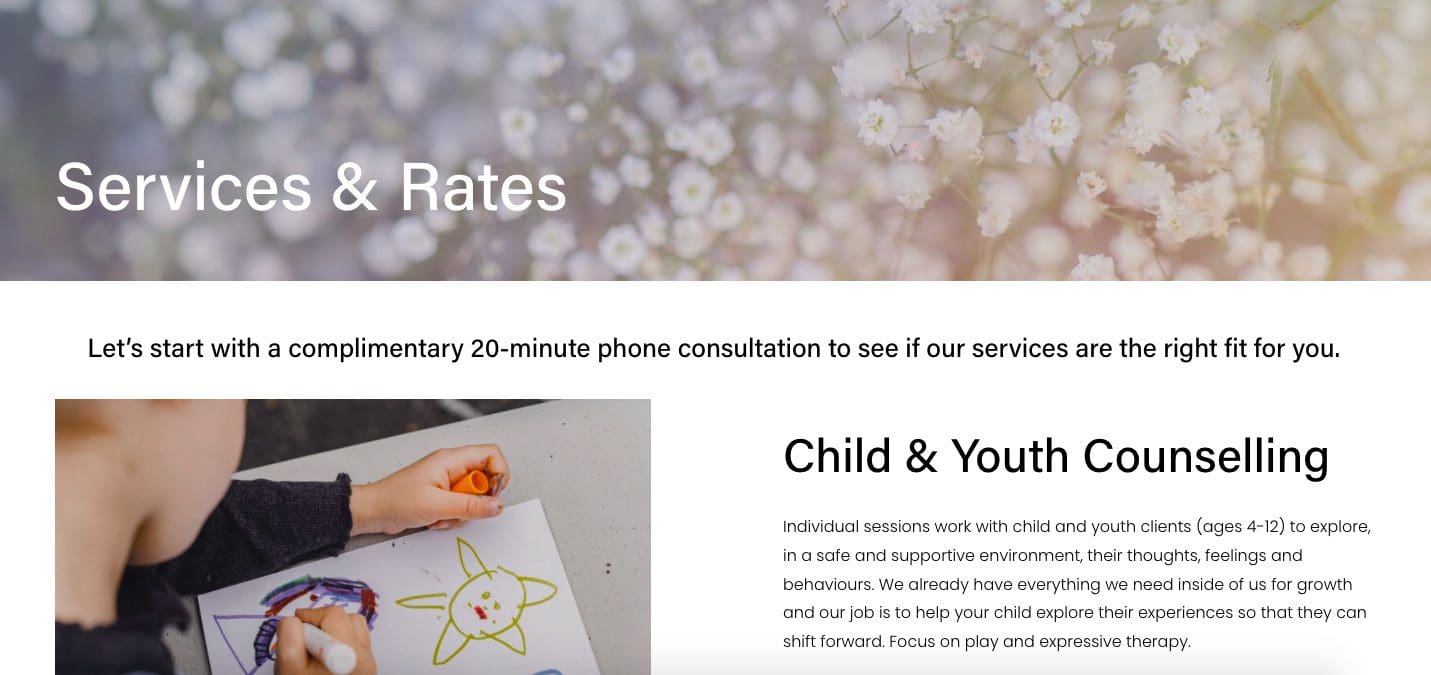Building My Private Practice as A Counsellor
You have the education, the skills, and now all you need are the clients. How do Counselling Therapists find their way after practicum ends and once they’re ready to start their private practice?
Preparations
During my final semester in the Counselling Therapist program at Stenberg College, we learned about marketing ourselves and our future practice: from developing an elevator pitch to writing an appealing biography for PsychologyToday.com.
We created business plans for start-up loans, analyzed advertisements for optics and ethics, and built spreadsheets that tracked our expenses and earnings. These preparations ensured that we had the necessary skills to open our private practice after graduation. This gave me an excellent idea of what I wanted my business to look like so that when I began building my client base, I knew exactly how I wanted to market myself as a new counsellor.
Building My Website

During my last two months in school, I started developing and creating my website so it was ready to use once I opened my private practice after graduation. A website is essential for any counsellor working for themselves because future clients can read about our approach, services or necessary experience and credentials before scheduling an appointment.
As a new counsellor, I wanted to carefully select the clients I work with (especially when it comes to my niche and training level) and set up my website so that potential clients cannot book initial sessions directly on my website. Instead, I offer a complimentary consultation to learn about the client’s concerns and goals for therapy and assess if we are the right match. This is an integral part of building a practice that aligns with your ethics and expertise.
I included any community connections I had established in my counselling internship and time at Stenberg College on the resources page of my website. This serves three purposes:
Linking my website to other professionals in the area boosts my website’s ranking on the web.Although it’s important to market the website as much as possible, building a practice isn’t just about advertising yourself to anyone and everyone. It’s about lining yourself with the values of an ethical counsellor and offering website visitors choices and support beyond what I can offer, which is very important to me.
Building Connections
Creating local connections was essential for me during my internship and a must for any new counsellor. It ensured that by the time I was accepting clients, I had a handful of trusted professionals who knew about my niche and were comfortable referring clients to my practice. It also meant that I was integrating myself into the community of qualified mental health professionals in my area. My time volunteering with organizations allowed me to grow my skills, receive helpful feedback and build important connections.
Another way I quickly built my practice was by establishing myself with an appealing and down-to-earth bio on PsychologyToday, a trusted website to find a local counsellor. Advertising on the website is an added business expense every month but it means I have put myself into the community and increased my exposure as a new counsellor. In this day of Internet marketing, a well-written PsychologyToday bio and introduction video has the potential to bring in a steady stream of clients – whether you’re a seasoned counsellor or brand new to the field.
Halfway through my internship, I focused on counselling a specific niche, which was incredibly rewarding and interesting. My niche is children and adolescents. In addition to my full-time studies at Stenberg, I completed additional certification and training in the evenings and weekends to educate myself in Play and Expressive Therapy so that I could set myself apart from other therapists. While most new counsellors often practice as a generalist to build their knowledge base early on, my practicum taught me that I found the most joy and fulfillment in focusing on a specific population.
A Fulfilling Career
Starting your practice can feel like a significant undertaking, filled with trial and error. It involves carefully marketing yourself, creating connections and pushing past feeling overwhelmed. With a bit of planning and dedication, the outcome can be incredibly fulfilling and rewarding.
Explore More
Discover more articles and insights from Stenberg College.